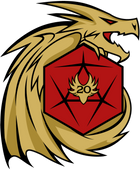In February 1984, TSR published Issue #82 of Dragon Magazine, it’s official publication for supplementary materials, commentary, and community engagement with the tabletop gaming hobby. This particular issue featured articles on magic rings, healing herbs, and the DragonQuest game system, as well as a small game for two players (a cute affair called Baton Races of Yaz, which included a hexgrid map and adorable aliens passing batons in a relay race).
It also featured the article Spells Between the Covers: Details for Delving into Magical Research, by Bruce Heard.
You can read the full article here: Dragon Magazine #82
The Ideas and Content of “Spells Between the Covers”

Spells Between the Covers is a dense, rules-packed article discussing methods to allow your players to find, buy, and research in their own personal library, specifically in search of particular spells. This is meant for AD&D, an edition which focused much more heavily on the creation and purchasing of spells by wizards. The ability to buy or make new spells as they are needed was, and is, one of the class’s strongest features, so expanded rules are extremely useful to have.
Normally, a wizard spends time and gold to research, copy, and add an additional spell to their spellbook. These costs can be unusually high if you’re considering the process to be merely, ‘find book, copy spell,’ but the process can be made much more interesting with a few changes. The first of those changes is the creation of a library.
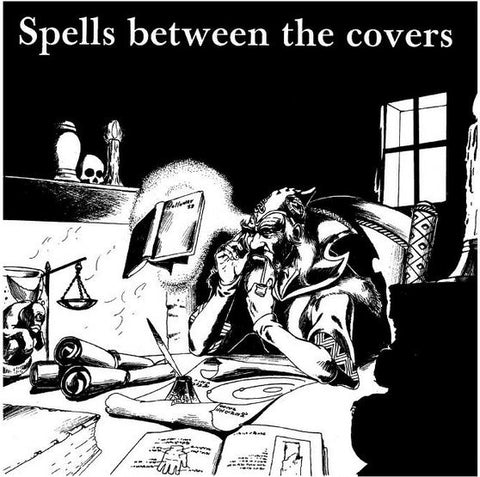
To create a library, it proposes, players should spend a certain amount of time and money (starting at 2000 gold and going up exponentially for each level of spellcasting that the contents of the library covers) collecting books. Then, they can use that library to gain bonuses for creating or locating particular spells, with higher bonuses for a more valuable library. The player still must spend gold and time researching, but they can raise their base chances of succeeding by up to 50%, which is more than worth the money.
Or, if your players prefer to buy their books one at a time, it also gives a handy table laying out how many books they might find for various amounts of gold. Buying these books is assumed to be part of the research process for a new spell, and once they are bought their value can be added to the total of the player’s library, giving them even more bonuses in the future. It even provides a list of fun arcane texts for your players to find, complete with famous wizards who wrote them. Of course, the article states that it’s pretty unlikely that the actual famous wizards were the ones who wrote the books, but it takes some guts to publish under the name of Vecna, even as a publicity stunt!
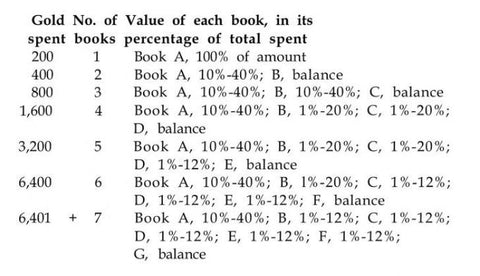
Books also need to be appraised for their value – something which the article provides rules for as well. While some editions of DnD have ‘appraise’ as a skill, AD&D does not, so it details a set of calculations that can be used to figure out how close any given character can get to an accurate price for each book they take a look at. Obviously, those characters with higher Intelligence scores fare better.
Finally, it covers ‘special’ books. These books are more than just research materials, they might be magical in their own right, contain curses, scrolls, or treasure maps, or simply be written in an unusual language. There’s a table for you to roll on when you want to give out a special book as treasure, along with explanations of what each one does.
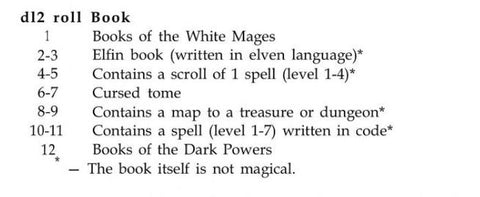
Is This Article Still Relevant?
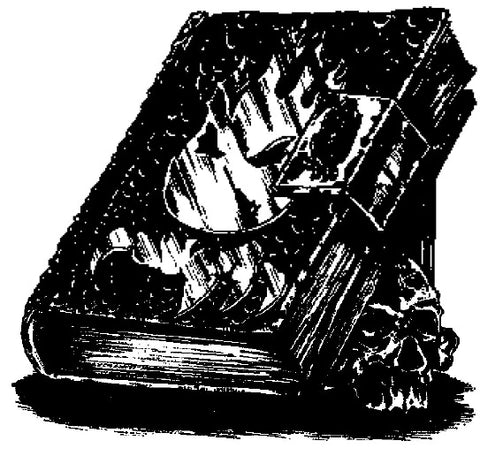
This article is partly relevant. 5e doesn’t emphasize buying and creating spells nearly as much as previous editions, and even when it does, it does so with much simpler rules. The dense mechanics that make up the majority of the article are completely useless to a 5e player, although those who still use 3e or 3.5e may find them slightly useful.
However, a modern player will still get a lot of use out of the list of book names, and could adapt the other content into something streamlined for the current version of the game. Creating a library, in particular, could be very appealing for wizards playing at a higher level, or simply for those who want to have a collection of information about their world’s history. It would make quest research a lot easier, after all!
How to Use this Content in a Current Campaign

The list of books included in the article can be used pretty much wholesale, with a few minor changes to add or remove spells so that they match the currently available spell lists. The table for special books can also be used mostly as-is, although you may want to change out the listing of ‘elfin books’ for books in a more unusual language, since Elven is much more commonly spoken in recent versions of DnD.
As for the buying of books and the creation of libraries, you might have to put a little more effort into adapting the rules for a 5e game. However, that doesn’t mean they’re useless. Creating a library can be a lot of fun for players, and it would be even better for it to give them some sort of relevant bonus for finding spells or historical information.
Since 5e rules for buying mostly require you to own a written copy of the spell, and then spend a small amount of time and gold transcribing it, the majority of the cost comes from buying a scroll or spellbook with the desired spell. Having a library could simply be a first-stop repository, letting them make a base INT check to see if their library contains their desired spell before they start asking the local vendors, with a more valuable library creating a lower DC. Or a library could give flat bonuses to Investigation, Arcana, and History checks!
Have you ever had a wizard buy or create spells for the spellbook? Would you be interested in building a library to help with that kind of activity in your DnD games? Let us know in the comments below!
